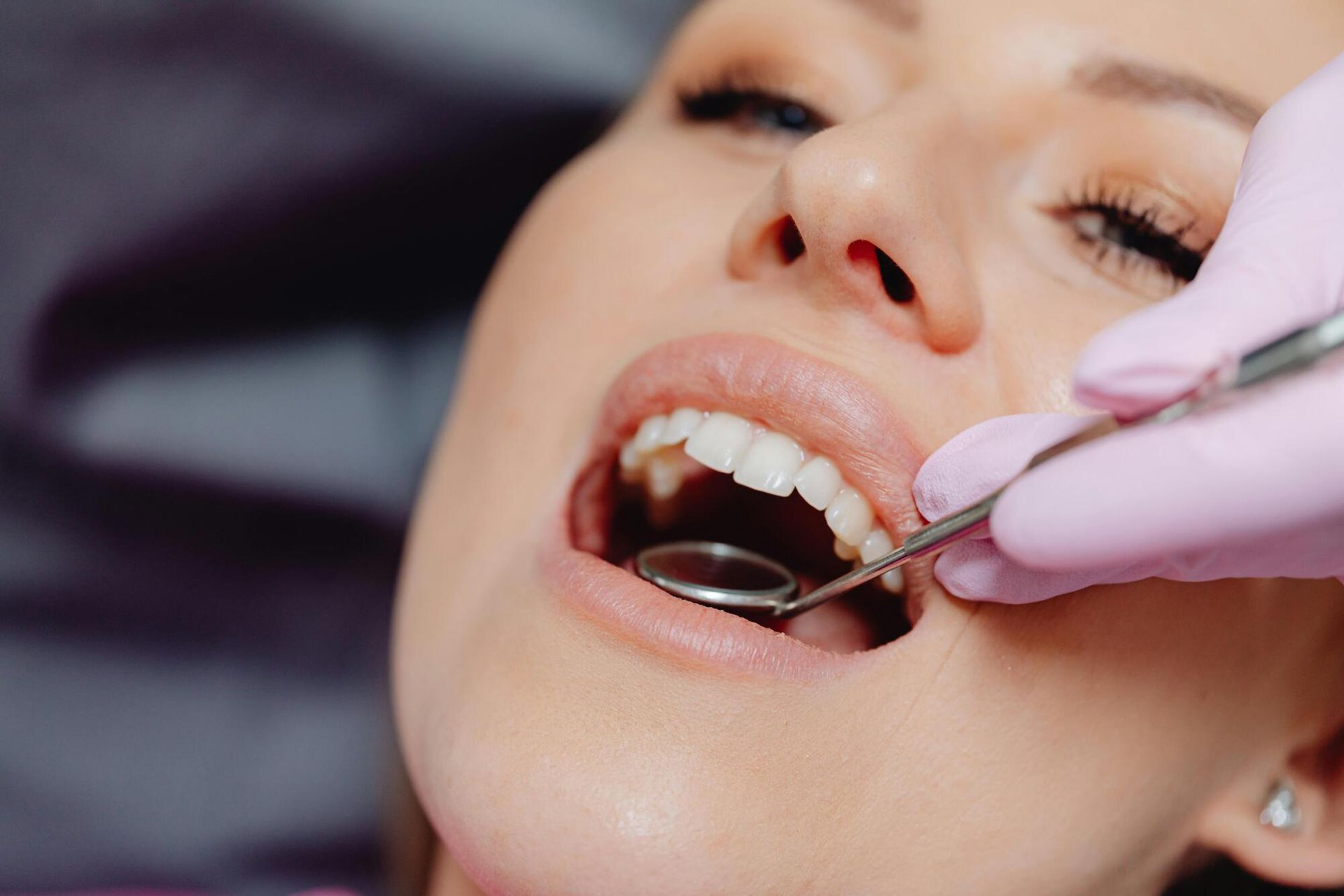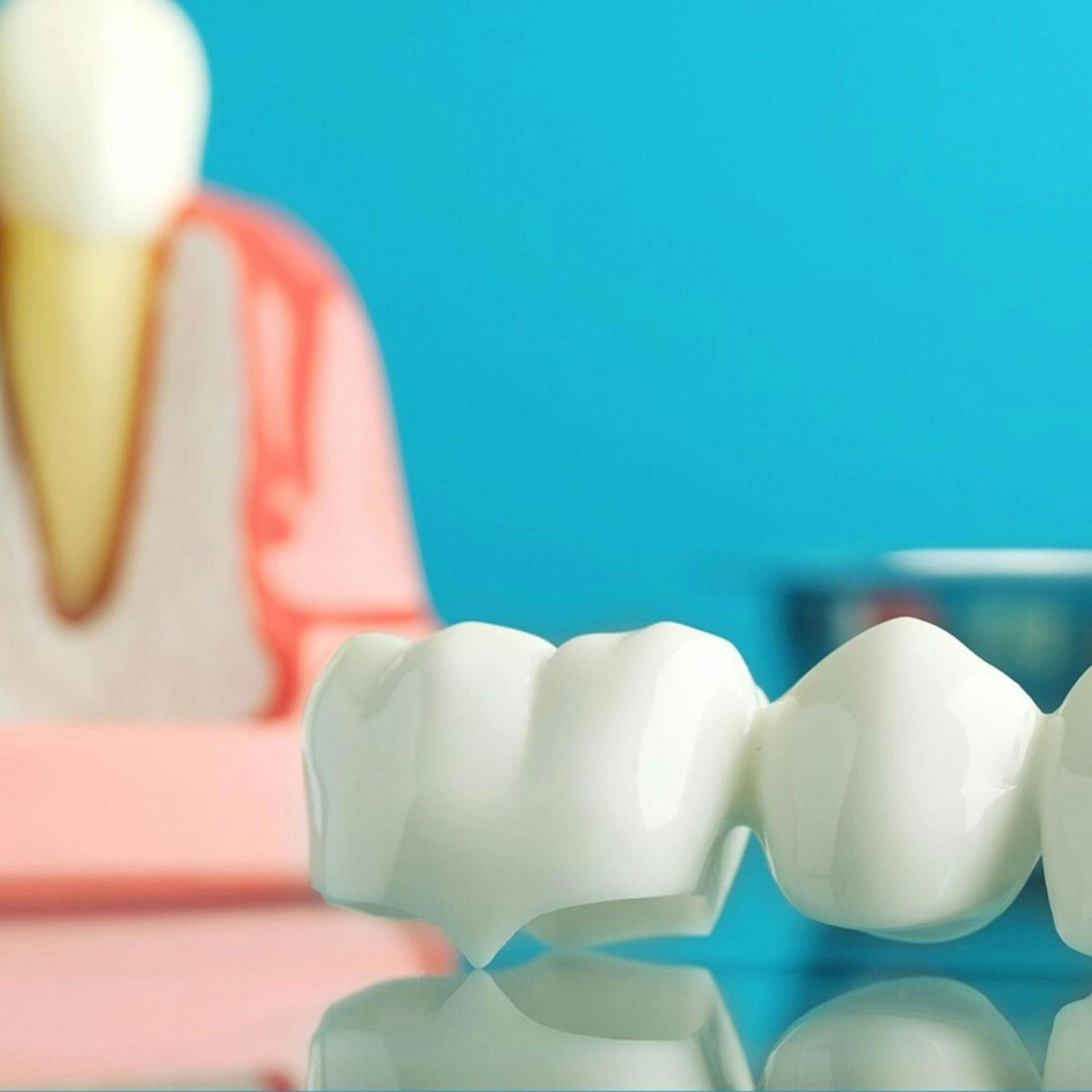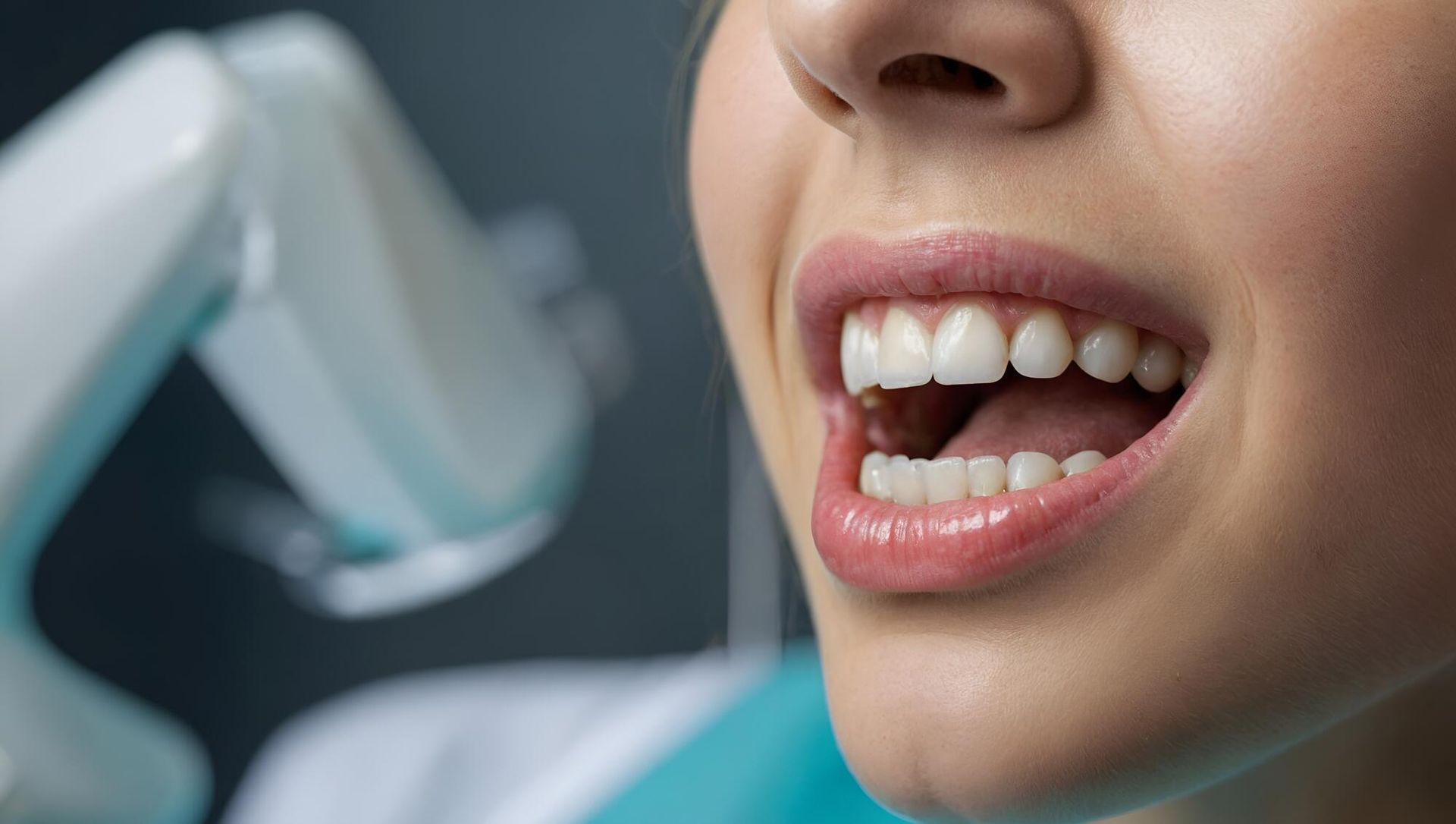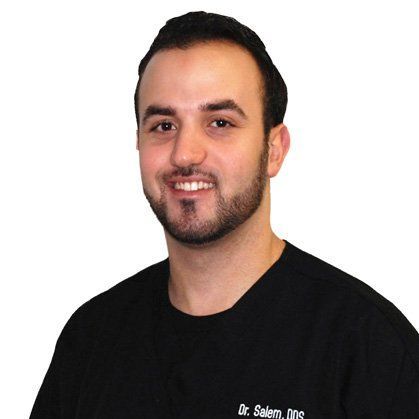Understanding the Risk Factors for Periodontal Disease
Do you know that gum disease affects nearly half of adults over 30 (MedlinePlus)? If you are concerned about your oral health, it is essential to understand the causes of gum disease that could put you at risk.
Periodontal disease isn't only about having unhealthy gums. If not addressed, it can lead to severe health problems, including tooth loss. Understanding the risk factors can help you proactively protect your oral health.
Imagine having healthy gums and a beautiful smile. You can maintain optimal dental health by learning the signs of gum problems and following our oral health tips.
Keep reading to discover the critical risk factors for periodontal disease and learn how to control your gum health.
Risk Factors for Periodontal Disease
Understanding the causes of gum disease can help you mitigate its risks. While several factors can lead to the development of periodontal disease, the following are among the most significant.
Inadequate Oral Hygiene
Neglecting regular brushing and flossing is a significant factor in developing unhealthy gums. When oral hygiene practices are inconsistent, plaque, a sticky film teeming with bacteria, accumulates on the teeth.
If plaque is not removed, it hardens into tartar, a substance that can only be removed by a dental professional. The presence of tartar can lead to inflamed gums, which, if left untreated, can progress into irreversible periodontal disease.
Tobacco Use
Using other forms of tobacco and smoking increases the risk of developing gum disease. Tobacco reduces the ability of gum tissue to heal and fight infections, making smokers more susceptible to severe forms of periodontal disease.
Genetics
For those with a family history of periodontal disease, it is crucial to take precautions to protect your oral health. Many people are genetically predisposed to developing gum disease, but by being proactive, you can take control of your oral health.
Age
The risk of gum problems increases with age. As you age, your immune system may weaken, and your body may not be as effective at combating infections, making older adults more prone to periodontal disease.
Health Conditions
Certain systemic diseases can increase the risk and severity of periodontal disease. These conditions affect your overall health and make it harder for your body to combat infections, including those in your gums.
Diabetes
Individuals with diabetes are at a higher risk due to their reduced ability to fight bacterial infections. Additionally, the high blood sugar levels associated with diabetes can exacerbate gum inflammation and lead to more severe periodontal disease.
Rheumatoid Arthritis
Rheumatoid arthritis is another condition that can complicate gum health by promoting inflammation throughout the body. The chronic inflammation associated with rheumatoid arthritis can exacerbate the severity of periodontal disease, leading to faster progression and more significant gum damage.
Chronic Kidney Disease
Understanding the link between chronic kidney disease and periodontal disease is key to maintaining your oral health. By knowing this connection, you can take steps to protect your gums from infections.
Osteoporosis
Osteoporosis, which weakens bones, can also affect the bone structure supporting the teeth. It increases the risk of tooth loss due to periodontal disease.
Osteoporosis may also lead to the faster progression of gum disease by compromising the density of the jawbone.
Hormonal Changes
Hormonal fluctuations, particularly in women, can lead to increased gum sensitivity and vulnerability to gum problems. These changes can elevate the risk of developing periodontal disease.
- Puberty
- Menstruation
- Pregnancy
- Menopause
Medications
Certain medications can affect oral health by reducing saliva flow. Saliva is crucial for washing away food particles and neutralizing acids produced by bacteria in the mouth. A dry mouth can lead to an increased risk of gum disease.
Signs of Gum Problems
Recognizing the early signs of gum problems is critical to preventing the progression of periodontal disease. Common symptoms include:
- Swollen, tender, or red gums
- Receding gums or longer-looking teeth
- Bleeding while flossing or brushing
- Shifting or loose teeth
- Consistent bad breath
If you notice any of these signs, remember that professional dental care is key to preventing the progression of gum problems. Seek help immediately.
Preventing Periodontal Disease
Prevention is always better than cure, which certainly applies to gum disease. Here are some effective strategies to help you maintain healthy gums.
Maintain Good Oral Hygiene
Be sure to floss and brush your teeth at least two times a day with fluoride toothpaste. This choice of toothpaste is a great way to ensure your teeth and gums are getting the best care. Use an antibacterial mouthwash to reduce plaque buildup.
Consistency in these habits is vital in preventing plaque from hardening into tartar, which can only be removed by professional cleaning.
Visit Your Dentist
Regular dental check-ups and cleanings are crucial in catching gum disease early before it progresses to more severe stages. These visits also allow your dentist to monitor your oral health and provide personalized advice tailored to your needs.
Quit Smoking
Completely stopping smoking is a good goal, especially for oral health and overall well-being. Smoking cessation improves gum health and enhances the body's ability to heal and fight infections.
Manage Health Conditions
If you have diabetes or other health conditions that increase your risk of gum disease, work with your healthcare provider to manage them. Maintaining control over these conditions can reduce their impact on your oral health.
Eat a Balanced Diet
A diet rich in minerals and vitamins supports gum health. Vitamin C and calcium are essential for maintaining healthy gums.
By incorporating a diverse range of fruits, vegetables, and dairy products into your diet, you can ensure you are getting the nutrients necessary for strong gums and teeth.
The Role of Professional Care
At Ivanhoe Dental Group in Riverdale, IL, we specialize in treating gum disease with advanced techniques, including the minimally invasive LANAP procedure. Removing only the diseased tissue and preserving the healthy tissue ensures better patient outcomes. Our experienced team provides comprehensive dental care tailored to your needs.
Combat Unhealthy Gums With Ivanhoe Dental Group
Understanding the risk factors for periodontal disease is the first step in safeguarding your smile. With the right oral health tips and professional care, you can prevent unhealthy gums and enjoy a lifetime of healthy teeth.
Don't wait until gum disease progresses to a severe stage. Schedule an appointment with Ivanhoe Dental Group in Riverdale, IL, today. Our expert team is here to help you maintain healthy gums and a beautiful smile.


Dr. Munther Salem
D.D.S
Dr. Munther Salem grew up in the Southwest Suburbs of Chicago. He received his Bachelors of Science degree in Biology from Benedictine University. He then attended the University of Illinois at Chicago School of Dentistry, where he earned his Doctor of Dental Surgery degree. Dr. Salem is an active member of the American Dental Association, Chicago Dental Society, and Illinois State Dental Society. Dr. Salem has also been on two medical mission trips to Jerusalem treating special needs children. Dr. Salem enjoys traveling and spending time with his wife and daughter. Dr. Salem is happy to be back in the South Suburbs where he grew up to provide excellent patient care to the Ivanhoe Family.
Dr. Monil Shah
D.D.S
Dr. Shah completed his dental education at Boston University School of Dental Medicine and has been practicing dentistry since 1999. In the years since, he has devoted himself to creating an environment in which patients know they are welcome as soon as they walk in the door. He is focused on providing excellent dental care and helping patients stay comfortable throughout their visits. Dr. Shah believes in giving patients the time to ask questions about their health and providing them with knowledgeable answers.
Dr. Janani Gurukkal
D.D.S
Dr. Gurukkal is new to the windy city and excited to join the Ivanhoe team. She was born and raised in Nashville, TN. She received her Bachelors of Science in Kinesiology from the University of Kentucky. She then pursued her Doctor of Dental Medicine at the University of Louisville. After graduation, she completed an Advanced Education of General Dentistry residency at A.T Still University in Arizona. Dr. Gurukkal has always had a passion for healthcare. She understands the importance of oral health and how it can have a profound impact on your overall health. She enjoys taking her time to get to know her patients in order to provide them with the highest quality of care. Her goal is to create an environment where patients can feel safe and comfortable to get the treatment they deserve. Dr. Gurukkal is an active member of the American Dental Association, Illinois State Dental Society, and Chicago Dental Society. She devotes her time to continuing education in order to stay current with the latest advancements of dentistry.
Outside the clinic she has spent time volunteering in her local community as well as abroad. In her free time, Dr. Gurukkal loves traveling and spending time with her family.
Dr. Ken Arrietta
D.D.S
A firm believer in patient education, Dr. Arrieta is a specialist in periodontics, the treatment of all the supporting structures of the teeth, including the gums, and the placement of dental implants. Dr. Arrieta’s skills enable many patients to complete their entire treatment plans at our location, avoiding the necessity of being referred to another office.
After completing his undergraduate studies at Loyola University, where he also made the Dean’s List, Dr. Arrieta earned his Doctorate of Dental Surgery at Northwestern University School of Dentistry. He continued his advanced specialist training at the University of Iowa where he received his Certificate in Periodontics.
Dr. Ravneet Bhullar
D.D.S
Dr. Ravneet Bhullar grew up in the heart of Atlanta, Georgia. He received his Bachelors of Science degree in Biology from the University of Georgia. Go Dawgs! Soon after Dr. Bhullar earned his Doctor of Dental Medicine degree from the University of Louisville School of Dentistry. Dr. Bhullar is an active member of the American Dental Association, Chicago Dental Society, and Academy of General Dentistry. Dr. Bhullar loves helping his patients' smile and helping them to maintain their oral health. When Dr. Bhullar is not in the office, he enjoys traveling to new places and spending time with his fiancée and their lovely cavalier poodle named Bean. Everyday Dr. Bhullar looks forward to learning more about his patients and providing them with all their dental needs!















